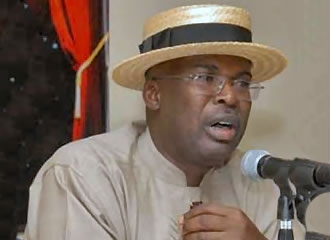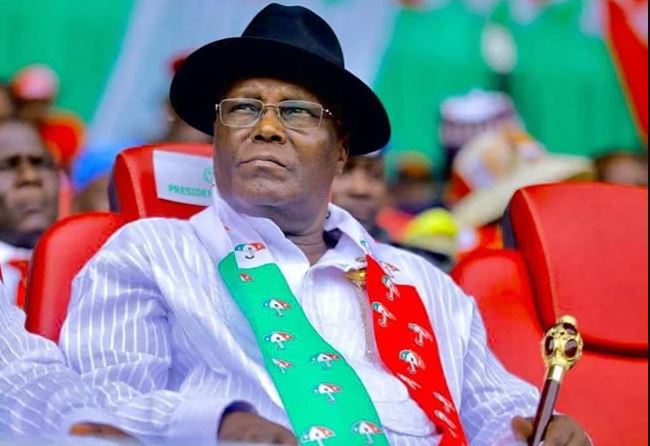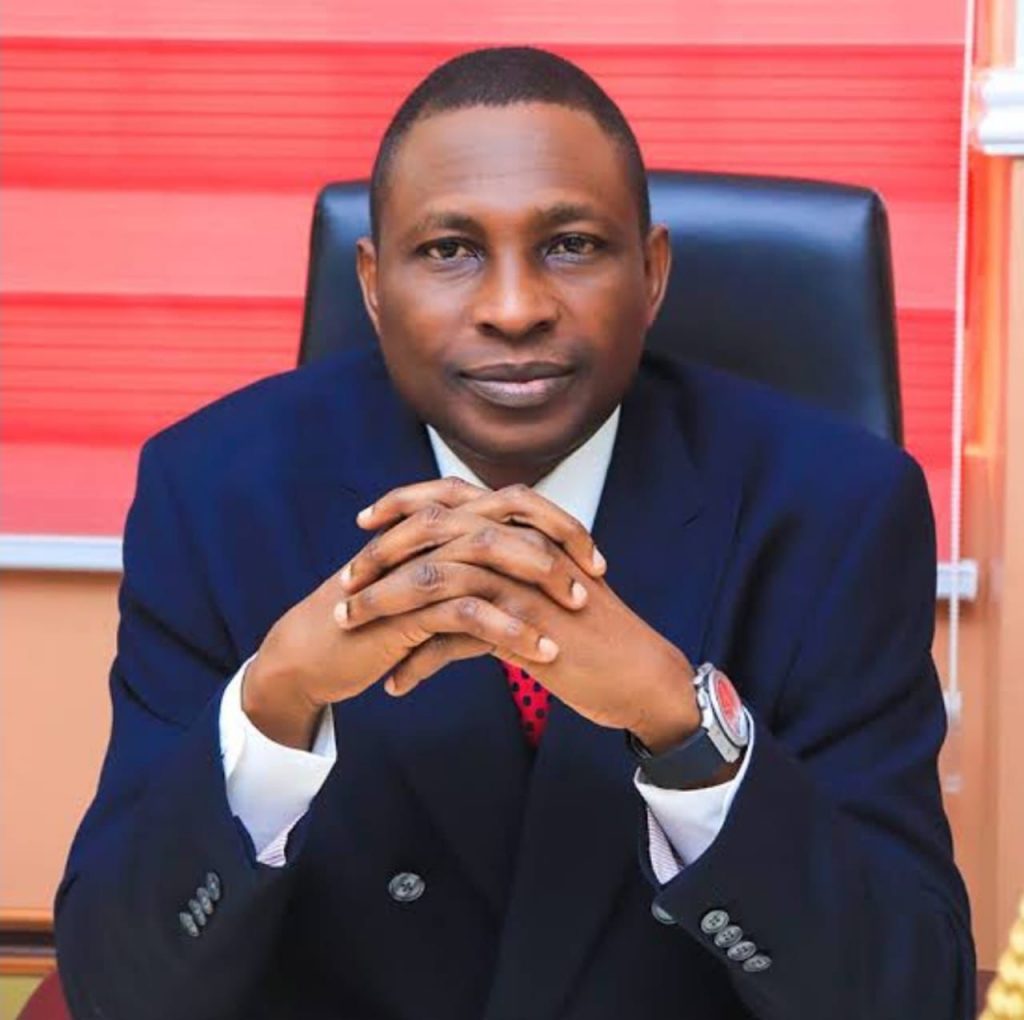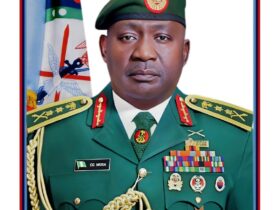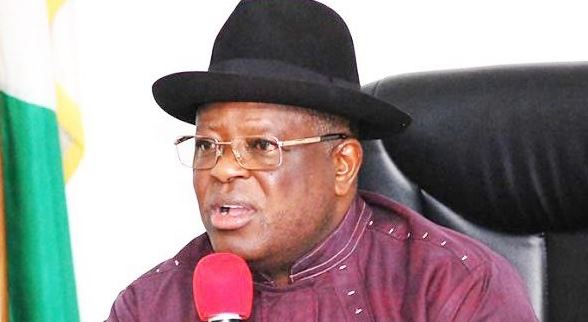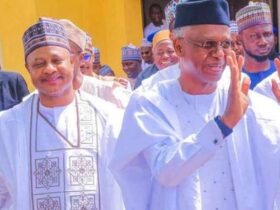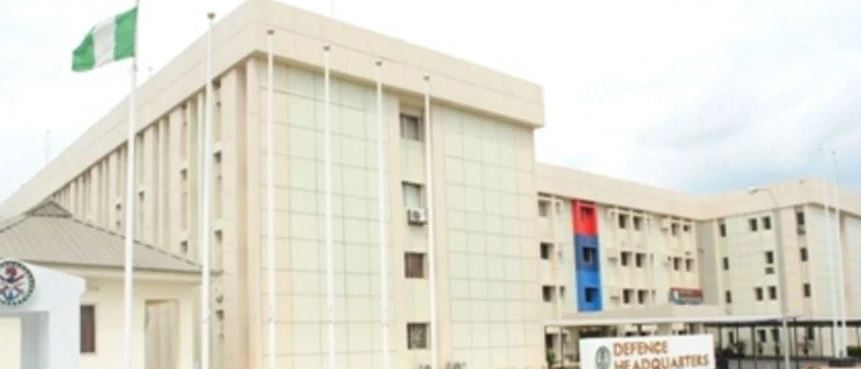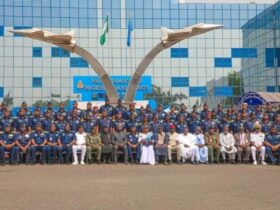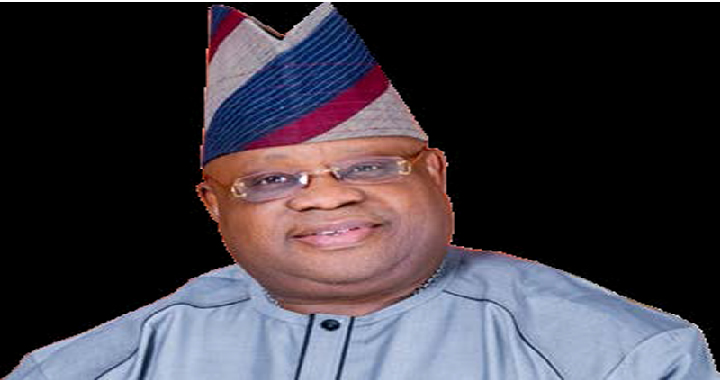The presidential candidate of the Peoples Democratic Party (PDP) in the last presidential election, Alhaji Atiku Abubakar, has again pleaded with the Supreme Court to jettison technicality and grant his application for leave to tender fresh and additional evidence to support his claim that President Bola Tinubu, submitted a forged document to the Independent National Electoral Commission (INEC) to contest the February 25, presidential election.
Atiku predicated his plea on the grounds that presenting forged documents by any candidate, especially by a candidate for the highest office in the land, is a very grave constitutional issue that must not be encouraged.
The former Vice President stated this in his reply on point of law to Tinubu’s objection to the grant of leave to Atiku to present the fresh evidence before the apex court.
Tinubu had predicated his objection on grounds of jurisdiction and that the issue of qualification is a pre-election matter amongst others and subsequently prayed the court to deny the grant of the application.
But in his reply on point of law, Atiku while faulting Tinubu submitted that issues of merit ought not to be determined or pronounced upon at the interlocutory stage.
The appellants/applicants while noting that they are only at this stage merely applying for leave of the Supreme Court to receive the fresh evidence, submitted that “to refuse to grant the leave as the respondents have argued, will amount to undue technicality.
“The Supreme Court, as the Apex Court and indeed the Policy Court, has intervened time and again to do substantial justice in such matters of great constitutional importance, as it did in the case of AMAECHI vs. INEC (2008) 5 NWLR (Pt. 1080) 227 and OBI vs. INEC (2007) 11 NWLR (Pt. 1046) 565. The Supreme Court applied the principle of ubi jus ibi remedium to ensure substantial justice is done in such novel scenarios.
“The need to rebuff, eschew and reject technicality and the duty of Court to ensure substantial justice is very germane in this matter, given the gravity of the constitutional issue involved in deciding whether a candidate for the highest office in the land, the office of President of the Country, presented a forged certificate or not.
“In urging the Honourable Court to overrule the objections of the Respondents, we can do no better than to commend to your noble Lordships the insightful words of the Supreme Court in ASSAH & ORS V. KARA & ORS (2014) LPELR-24212(SC), per Rhodes-Vivour, JSC as follows:
“Law is blind. It has no eyes. It cannot see. That explains why a statue of a woman with her eyes covered can be found in front of some High Courts. On the contrary, justice is not blind. It has many eyes, it sees, and sees very well.
‘The aim of Courts is to do substantial justice between the parties and any technicality that rears its ugly head to defeat the cause of justice will be rebuffed by the Court.” (Underlining ours).
Meanwhile, in a 20 paragraph affidavit deposed to in support of the application, Atiku argued that if the Apex Court grants the application, there would be no need for “any further argument other than the written address in support of same showing that the 2nd Respondent is in violation of the provisions of Section 137 (1) (j) of the Constitution by presenting a certificate disclaimed by the institution from where he purportedly procured same.
“That contrary to paragraphs 16(xi) of the 2nd Respondent’s Counter-Affidavit, there was no ex parte communication with the Honourable Court, but the letter was forwarded to the Registrar of the Court just as was done in the case of Uzodinma vs. Izunaso (2011) 17 NWLR (Pt. 1275) 30, at 56 (paragraph h of the affidavit on page 56) in which Counsel for the 2nd Respondent and Counsel for the Appellants/Applicants were both involved.
The deponent, Mr Uyi Giwa-Osagie, further argued that Tinubu objection was baseless because he was represented both at the discovery and the depositions as well as at the court hearing by his Chicago Attorneys, and that the 2nd Respondent never challenged the issue of venue of the discovery and deposition.
“That the presence of the 1st and 3rd Respondents at the discovery and deposition was not necessary.
“That I know that the 2nd Respondent’s appeal was to prevent the discovery and deposition, and that the said Appeal failed.
“That I know as a fact that the discovery and deposition were ordered by the District Judge, and was not out-of-court.
“That the Appellants were not indolent in their pursuit of the discoveries and deposition as it was also the letter tendered as EXHIBIT XX2 by the 2nd Respondent in the course of his defence purportedly issued by Caleb Westerberg that clearly gave the Appellants/Applicants further reasons to build on the evidence of PW27 by the discovery proceedings for the documents and Deposition on Oath of the same Caleb Westerberg.
“That the process for the discovery and deposition was commenced by the Appellants/Applicants with several initial preliminary processes by their U.S. Attorneys culminating in their eventually filing a Petition for the issuance of Subpoena, a copy of which is annexed herewith as EXHIBIT “K”.
“That the process was severely stalled by the vehement opposition of the 2nd Respondent, citing irreparable damage to him, amongst other excuses, and I annex herewith as EXHIBIT “L” the motion the 2nd Respondent to quash the subpoena, which application failed.
“That the process was also further delayed by a motion to join or intervene filed by the 2nd Respondent, which was granted, a copy of which application is annexed herewith as EXHIBIT “M”.
“That eventually the subpoena was ordered, and annex herewith a copy of the subpoena along with the documents that accompanied it as EXHIBIT “N”.
“That the 2nd Respondent has been in primary possession of all the facts sought in the discovery but took every step to block their release, notwithstanding that the 2nd Respondent had equally applied through his Attorney in the United States, Mr. Wole Afolabi, for the release of the said documents, which were released to him as shown is EXHIBIT “P” presented in the course of the discovery and deposition process.
“That I know as a fact that the Appellants are in this appeal challenging the rulings of the lower court striking out certain paragraphs of their Petition as well as their Replies dealing with aspects of qualifications of the 2nd Respondent”.
Meanwhile, Atiku faulted Tinubu’s submission that he was inconsistent in his names, describing the submission as immaterial and pedestrian, as there is no Petition challenging his qualification.
“That it is immaterial that 1st Respondent had since June 24th 2022 published the factitious credentials of the 2nd Respondent as presentation of a forged certificate by a candidate for election to the office of President of the Federal Republic of Nigeria is a post-election matter under Section 137 (1) (j) of the Constitution”.
Besides, Atiku pointed out that the presentation of a forged certificate disqualifies a candidate for all time, no matter when presented.
“That the case is not whether 2nd Respondent attended Chicago State University but whether he presented a forged certificate to the Independent National Electoral Commission (INEC).
“That at the trial, a National Youth Service Corps certificate with serial number 173807 presented by the 2nd Respondent to the 1st Respondent was equally tendered by the Appellants/Applicants at the trial as “EXHIBIT PBD 1A” with the name Tinubu Bola Adekunle, which is annexed herewith as EXHIBIT “J”.




